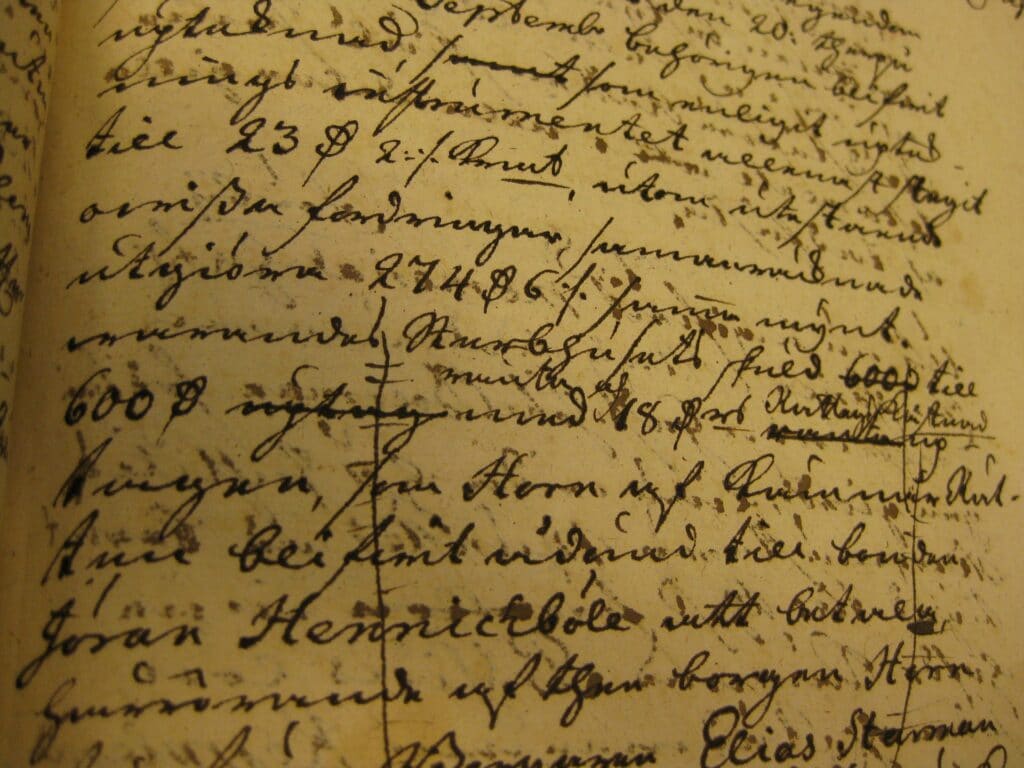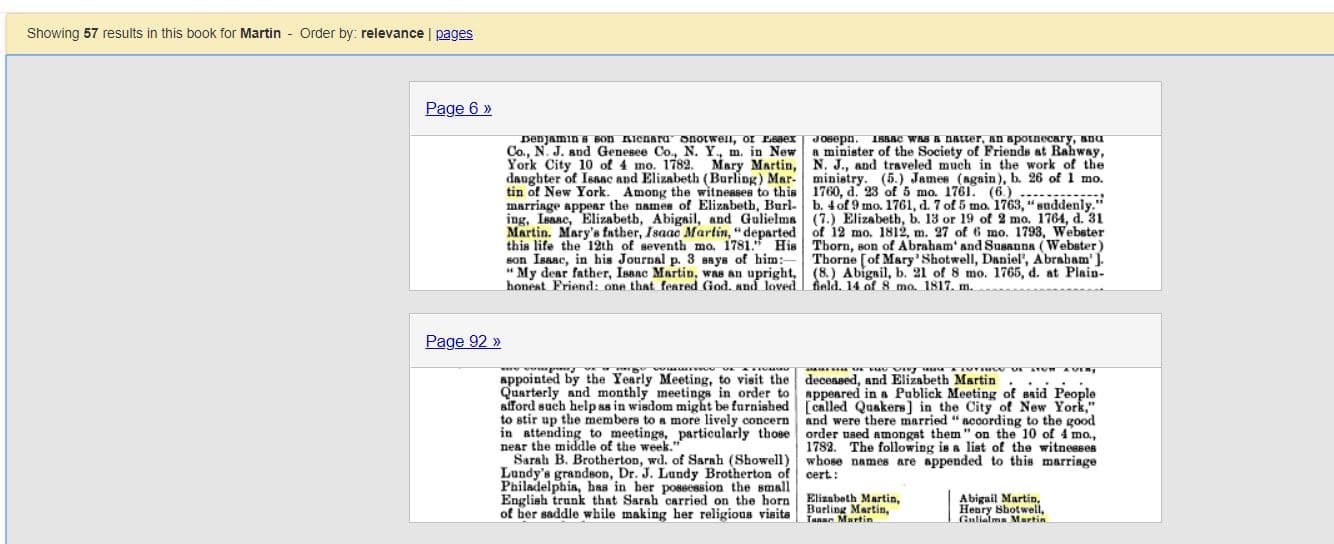By Janet Meydam
Can you trace your ancestors back to Colonial America? If so, you may find that searching for your family during this time period is more challenging than you expected. But there is hope of discovering new insights – you just need to know where, and how, to look.
Although many original records from this time period have not survived, or do not include details we might expect from more modern documents, years of hard work by historians and genealogists have made many resources available. Even better, many are free and accessible online.
Here are some tips and resources to help you start digging into your colonial past. For more detailed assistance with colonial records and research, consider taking our online Genealogy Research Course.
Tips for Researching Colonial Ancestors
Records in Colonial America were usually kept by individual colonies and towns. To help identify which record sets to search, it is helpful to know approximately where your ancestors lived. Remember that since the country was being settled and land was abundant, many people moved around and pinpointing where your ancestors settled can sometimes be challenging.
Here are some things you can do to help narrow down the search:
- Trace your ancestors back as far as you can on the United States Census (1790 is the earliest). Clues on later census records can help lead you to earlier records. For example, my ancestor Jonathan Dilley is recorded as living in the Town of Warren, Lake County, Illinois in 1880. His birthplace is recorded as New Jersey. Starting with this information, my parents were able to trace the Dilley family back into the late 1600s in colonial New Jersey. You can learn all about what can be found in early census records here.
- Work to locate the towns where your ancestors lived. Many historians in the 1800s and early 1900s wrote histories of colonial towns in America. Since these histories are now more than 70 years old, the works are considered public domain and many are digitized for online viewing. These often contain individual names of the founding families of the town, old town meeting records, court records, church membership records, and sometimes vital records. Find free sights for locating these records below.
- Since the availability of census and vital records from this time period is sporadic, get ready to begin digging into alternative records. Probate and court records, deeds, and pension records are just a few of the alternatives to search for colonial ancestors. The free research sites on this page offer many of these records.
Where to Find Free Colonial Records Online
Most large paid genealogy websites, such as MyHeritage or Ancestry, provide access to records from the colonial period so, if you already have a subscription to one of these sites, be sure to look through their card catalog for help finding databases that may help. Read more about how to access and use the card catalogs of large sites here.
But you don’t have to have paid access to a large genealogy website to access colonial records online. Below are a few sites that offer fascinating records or indexes free of charge.
1. FamilySearch
FamilySearch has literally hundreds of databases that pertain to Colonial America. To find them, search the catalog for a place name and keywords and then target a resource to explore. I typed in the keyword “colonial” and the place name “New Jersey” and got the following results that include 43 sets of records.
Finding the right resources, rather than simply searching for a name in the main search, will allow you to get to know a collection and get the most out of it. And know that not all of FamilySearch’s databases have been indexed (meaning they are not all searchable) so stay open to browsing records when needed. Read more about that here.
2. USGenWeb Archives
Yes, the USGenWeb Project is still around. Many people spent years loading databases into the archives section of this website, so it is definitely worth a look. You will need to know what state your ancestors came from to browse the archives here. If you can narrow your search down to a county that is even more helpful. The amount of information you will find here is totally dependent on how many databases the volunteers for this website have uploaded. Some counties have many, many records and some have only a few.
3. Google Books
Google has digitized thousands of published family trees and other historical books that are more than 70 years old and considered public domain. To find only free ebooks you will need to select this option from the drop down under the search. Look for “Any Books,” click on it and select “Free Google Ebooks.”
Then, complete a search for a book that may be of help to you. Try typing in a location name and date range, or a surname. Use Google search tricks to help narrow your results.
Once you have opened an e-book, you can search the text by keyword for surnames, place names, and so on. Here is how the results page looked when I searched an e-book for the surname Martin:
For more sources of old books you can read Here’s How to Find Tens of Thousands of Family History Books for Free.
4. Digital Public Library of America
This is another good source for digital books, and many other old records. The DPLA searches for and links to digitized books and papers from libraries all over the United States. Old pamphlets, booklets, fliers, and handwritten documents such as letters are often viewable here.
My keywords “New Jersey” and “colonial” yielded 613 search results – but keep in mind that the books and documents themselves are not usually searchable, so you will need to browse through each publication for the information you need.
These websites are a good place to start your search for colonial ancestors. However, many Colonial era records are still only available through state and local archives. Use Google to locate local repositories and see what they hold, or check out this list of free research sites by U.S. state. Also consider using an online archive search like this one.
At some point you will probably have to leave your computer and dig into the dusty old books of a physical library or courthouse, but searching digitally should help you accomplish a lot of work beforehand.
You might also enjoy:
This Google Trick Reveals Thousands of Free Genealogy Books on Amazon
Why Getting to Know an Ancestor’s Location Can Be a Research Game Changer
Learn more about research during the Colonial era in our online course.
Janet Meydam is a freelance writer who has over 40 years of experience in genealogy as a hobby. Her knowledge includes researching many different records from the United States, Germany and Poland. She is also a co-author of her parents’ family history book “I Come from a Long Line of Dilleys.” Janet works as an occupational therapist. She and her husband Tim have three adult children and live in Wisconsin.




I am from Fiji Islands in the South Pacific The thing that I am tracing back is my grandfather who were here in Fiji during the second world war he met my grandmother in the village were the American troops were stationed during that time prior them moving to Guadcanal solomon Islands assistance is highly appreciated.
S. KASAMI
good work!!!!!